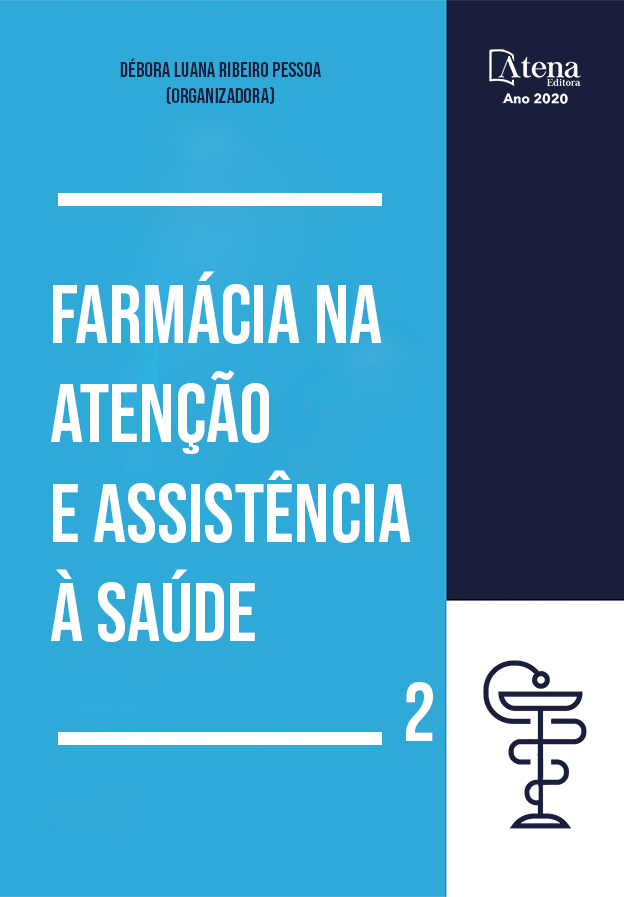
EFEITO DAS SUBSTÂNCIAS POLARES DA ASCÍDIA Didemnum perlucidum NA ATIVAÇÃO DAS CÉLULAS ESPLÊNICAS E INFLAMAÇÃO
A ascídia colonial Didemnun perlucidum, é um organismo que possui uma taxa de crescimento elevado. Crescendo, também, associado a maricultura. Estudos realizados com esta ascídia mostraram que as substâncias polares e menores que 50Å inibem o crescimento do tumor ascético de Ehrlich em mais de 50%. O objetivo deste trabalho foi avaliar a atividade das substâncias polares menores que 50Ǻ da ascídia D. perlucidum na ativação de células esplênicas e na resposta inflamatória aguda. No estudo de ativação de células esplênicas, os camundongos receberam o desafio antigênico com hemácia de carneiro e foram tratados durante sete dias. No oitavo dia as células esplênicas foram coletadas e colocadas em cultura para a determinação da produção da citocina IL-2 e interferon-gama (IFN-γ) no sobrenadante e a proliferação celular por MTT. No estudo da inflamação aguda os animais foram divididos em 4 grupos: Grupo 1 foi o grupo controle negativo; Grupo 2 recebeu apenas carragenina (i.p.); Grupo 3 recebeu a subfração da ascídia e carragenina; Grupo 4 recebeu tratamento com dexametasona e carragenina. Foi avaliado o influxo leucocitário para o sítio inflamatório e a produção ex vivo de IL-12 por estas células. Os resultados mostraram que o tratamento reduziu a proliferação das células esplênicas sem alterar a produção das citocinas IL-2 e IFN-γ. Na inflamação aguda, o tratamento reduziu o influxo celular sem alterar a produção da citocina IL-12. Portanto, estes resultados não nos permitem afirmar que a redução do crescimento tumoral seja devido a estimulação da resposta da imune inata ou específica dos camundongos, exigindo mais estudos para a compreensão da atividade antitumoral das substâncias provenientes da espécie da ascídia D. perlucidum.
EFEITO DAS SUBSTÂNCIAS POLARES DA ASCÍDIA Didemnum perlucidum NA ATIVAÇÃO DAS CÉLULAS ESPLÊNICAS E INFLAMAÇÃO
-
DOI: 10.22533/at.ed.73720151216
-
Palavras-chave: Ascídia; Células esplênicas; Inflamação aguda; Citocina.
-
Keywords: Ascidia; Splenic cells; Acute inflammation; Cytokine.
-
Abstract:
Colonial ascidian Didemnun perlucidum, is an organism that has a high growth rate, associated with mariculture. Studies with this ascidia showed that polar substances smaller than 50Å inhibit the growth of Ehrlich's ascetic tumor by more than 50%. The aim of this work was to evaluate the activity of polar substances less than 50Ǻ of ascidia D. perlucidum in the activation of splenic cells and in the acute inflammatory response. In the splenic cell activation study, the mice received the antigenic challenge with sheep red blood cells and were treated for seven days. On the eighth day, splenic cells were collected and placed in culture to determine the production of cytokine IL-2 and interferon-gamma (IFN-γ) in the supernatant and cell proliferation by MTT. In the study of acute inflammation, the animals were divided into 4 groups: Group 1 was the negative control group; Group 2 received only carrageenan (i.p.); Group 3 received the sub-fraction of ascidia and carrageenan; Group 4 received treatment with dexamethasone and carrageenan. Leukocyte influx to the inflammatory site and ex vivo production of IL-12 by these cells was evaluated. The results showed that the treatment reduced the proliferation of splenic cells without altering the production of cytokines IL-2 and IFN-γ. In acute inflammation, treatment reduced cell influx without altering the production of the IL-12 cytokine. Therefore, these results do not allow us to state that the reduction in tumor growth is due to the stimulation of the innate or specific immune response of mice, requiring further studies to understand the antitumor activity of substances from the species of ascidia D. perlucidum.
-
Número de páginas: 15
- Ana Paula Schappo
- Giovana Faccio
- Katia Naomi Kuroshima
- Ana Angélica Steil
- Jessica Liliane Paz


